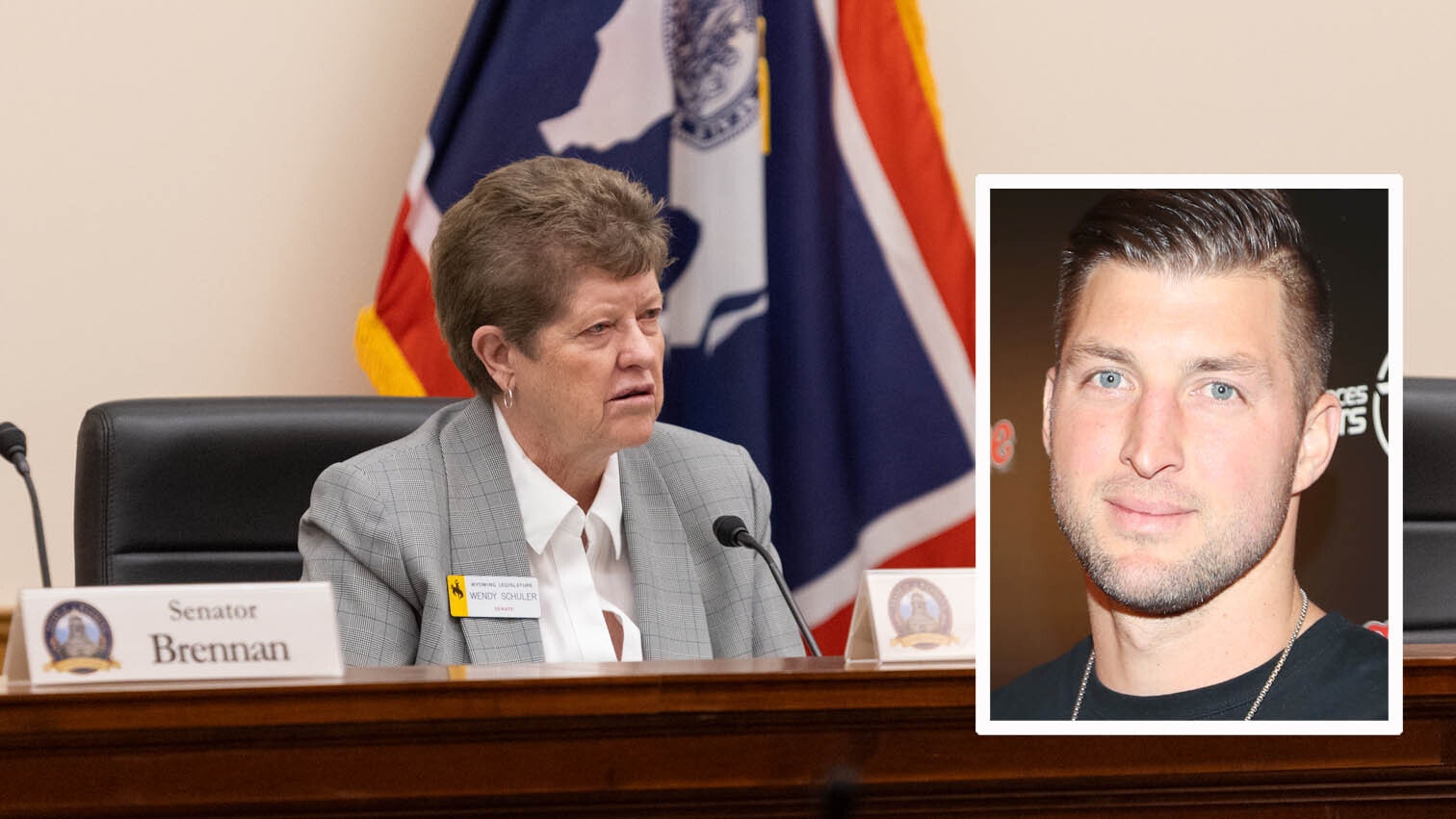Even as some sick patients test negative for illness, cases of the flu, COVID-19 and other viruses are spiking dramatically in Wyoming.
That’s likely because of mutated strains of influenza, health officials say.
The Centers for Disease Control and Prevention reports that Wyoming is one of 12 states recording a “very high” viral rate of COVID in wastewater, where it can be measured, and people are urged to take precautions to keep themselves safe.
The CDC calls this a “silent” surge because the current wave of positive COVID cases follows a long period of unusually low COVID activity this fall. This means that most people are unaware that COVID levels have risen sharply in recent weeks and have not been taking precautions to prevent the spread of the virus.
“We're seeing a ton of increased flu right now along with a spike in COVID cases,” Brianne Siebert, Ph.D. nurse at Wind River Cares Clinic, told Cowboy State Daily. “Sometimes we can predict what strains are going to be popular and protect against those strains with the vaccine. And other years the prediction is just a little bit off and more people get it than we would like to see.”
Tests for influenza and COVID-19 have been coming back negative for some patients, so Wyoming doctors are dealing with an unknown strain of virus this year. Siebert still recommends getting this year’s flu vaccine because it will cover other strains of the flu. Treatment is also the same regardless of what a patient tests positive for.
The Wyoming Department of Health reports that cases of reported positive influenza are continuing to increase over the state. From Sept. 29 to Oct. 5, the number of reported influenza cases increased from 10 to 242 cases between Dec. 22-28. That is a 2,320% spike of reported cases in the past three months with only half of the providers in Wyoming reporting.
The WDH describes both Influenza and COVID-19 as contagious respiratory illnesses. Symptoms can include fever, cough, sore throat, runny or stuffy nose, headache, extreme tiredness and muscle or body aches depending on the virus and on the person.
Most healthy people recover from respiratory illnesses but still have an unpleasant experience that can mean missing work, school or other activities.
“It appears influenza activity is increasing across the state with a recent clear uptick in reports,” Wyoming Department of Health spokesperson Kim Deti told Cowboy State Daily. “Our statewide transmission level is currently considered to be "regional," with the highest levels of activity coming from the southeast and northwest areas of the state.”
COVID Still Around
The Health Department stated that it is important to note that COVID continues to circulate in Wyoming and sicken people at similar levels to influenza. There are also some reports of Respiratory syncytial virus (RSV) and whooping cough.
“It's not surprising to see these types of illnesses at this time of year,” Deti said. “COVID-19 activity has remained continuous year-round with some ups and downs over time.”
While COVID-19 has never left, neither has influenza.
Both A and B strains are circulating, Deti said, and H1N1 and H3N2 are both heavily prevalent. The cold winter season is keeping people inside, where they can more easily spread illnesses to others, causing the spike in viruses.
“You see peaks in the winter, because everybody is indoors in close quarters,” Siebert said. “We’re breathing on each other, we're sneezing on each other, we're touching things. Kids especially are the big spreaders because we touch things and touch our mouths and things like that.”

Preventative Measures
“We are recommending seasonal flu shots and updated COVID-19 vaccines for everyone six months of age and older who hasn’t already received them this fall,” said Dr. Alexia Harrist, state health officer and epidemiologist with WDH. “These safe and important vaccines reduce and help prevent serious illness, hospitalizations and deaths and remain our most important protection strategy against these respiratory viruses.”
Harrist explained it can take up to two weeks for the protection seasonal vaccines offer to fully kick in. They don’t want people to wait to get vaccinated until they are ill.
“Unfortunately, these are not ‘one-and-done’ vaccines,” Harrist said. “They need changes over time to help ensure the best possible match to currently circulating virus strains. Because they are truly seasonal vaccines, staying up to date is important.”
Aside from vaccines, there are simple preventive measures to take to stay healthy.
“Wash your hands,” Siebert said. “That's the biggest way to decrease the incidence of the flu is washing your hands.”
Treatment
People should cover their coughs and stay home from work, school and other public gatherings if they become sick to help reduce the spread of the illness.
There is also no magic cure if you have already caught the flu, COVID or another mysterious virus. You will need to treat your symptoms and get plenty of rest.
“We don't have any miracle drugs like antibiotics that can take care of it,” Siebert said. “It's going to be Tylenol, ibuprofen, which will help with the fever, the body aches, the headaches that you see.”
She does recommend getting tested just so that your doctor knows what they are dealing with, especially in the first couple of days of symptoms.
“We do have medications that can decrease the length of illness, but we can only use those medications within the first two days,” she said. “It can help decrease the length and the severity of illness. So especially if you're someone who has any other health issues like asthma or diabetes, being tested very quickly is important, so that we can get you on medications to help decrease the risk of severe illness and hospitalization.”
Jackie Dorothy can be reached at jackie@cowboystatedaily.com.





